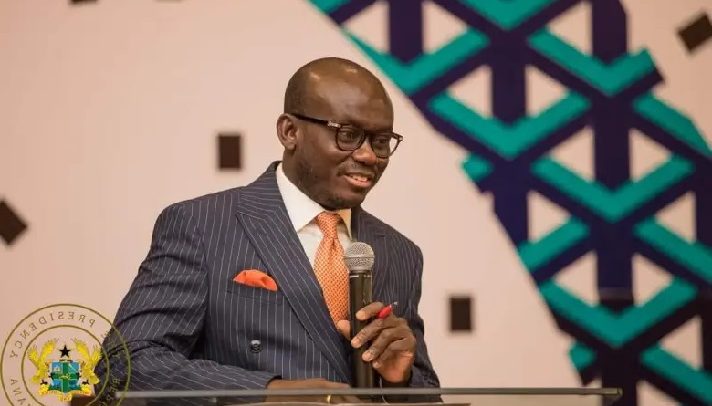Godfred Yeboah Dame
Attorney General and Minister for Justice, Godfred Yeboah Dame, has called on top global actors in the fight against cross-border economic and financial crimes to step up cooperation in order to root out the growing global phenomenon.
According to him, the end-game of prosecution of crime is to identify and trace the assets of criminals obtained from illicit activity, given the rise in global trends pointing to the fact that organised financial and economic crimes are on the increase.
He pointed out that the survival of the global community is dependent on how effectively it can foster collaboration between its justice partners to combat the menace and how the sources of income of criminals can be disrupted.
Mr. Dame made these remarks in his keynote address at the 41st Cambridge International Symposium on Economic Crime at the Jesus College, University of Cambridge, United Kingdom yesterday under the theme, “Suspect Assets”.
This is the third occasion he is addressing the symposium since he was appointed Attorney General and Minister for Justice of Ghana.
Mr. Dame, in his address, called for the tackling of financial crime from the base, indicating that an effective way of depriving criminals of the fruits of their wrongdoing is by dealing with the sources of funding of their subversive enterprises, so as to disrupt and intercept the proceeds of their misconduct.
“Whilst tracing of assets is largely international and multi-jurisdictional, we must bear in mind the peculiarities of asset tracking and fighting economic crime generally within the context of specific continents and regions,” he said.
He further stated that “Our survival as a global community depends on the efficiency of cooperation among us. The world can develop a proper response to the dangers posed by economic crime only through a coordinated effort based on mutual cooperation between criminal justice partners and the private sector globally.”
“Law enforcement officials on both sides must drive forward to ensure a return of illicit funds to countries from which they originate. There must be free international data sharing to combat cross-border economic crime,” Mr. Dame added.
African Continent
Mr. Dame also observed that the African experience with regional integration presents further complexities for the effort to curb illicit transfer of funds and concealment of assets.
“In Africa, the launch of the Africa Continental Free Trade Area (AfCFTA), whilst presenting Africa with its greatest opportunity to show to the world the strength of its potential and the entrepreneurial spirit of the people, has unleashed a new set of issues of concern to law enforcement authorities.
“These take the form of migratory problems, how to deal with the phenomenon of corruption within the context of the African Continental Free Trade Area, money laundering, and environmental challenges. The need to ramp up international cooperation in confronting financial and economic crime cannot be overstated,” Mr. Dame said.
Recovering Illicit Wealth
The Attorney General also indicated that the motivation for financial and economic crime, often, is the acquisition of illicit wealth, and the securing of undue advantage, thus effectively tracing assets of suspects and recovering the proceeds of crime nips the motive for such crimes in the bud.
“Thus, the quest to recover the assets of criminals obtained from criminal enterprise places law enforcement agencies squarely in the position to contribute to the national purse since a success in that regard makes them a major generator of revenue,” the Attorney General further remarked.
Abusing Plea Bargaining
Mr. Dame also observed that plea bargaining as a means to combating financial and economic crime is a welcome development, but warned that where prosecutors are “motivated by the sole objective of recovering supposed proceeds of crime in a situation where the accused persons plainly refuse to admit responsibility for the commission of those crimes, is an unwanted paradox inimical to the rationale for the existence of criminal laws.”
He said the prosecutors will face a real risk of sacrificing their reputation and creating a false impression of having compromised their professional integrity and duty to prove the commission of an offence on the altar of making money for the state, or providing a shield from prosecution to accused persons.
“A delicate balance, therefore, ought to be struck,” he added.
Domestic Measures
Mr. Dame also touched on three legislations: The Economic and Organised Crimes Office Act, 2011 (Act 804); The Office of the Special Prosecutor Act, 2017 (Act 959), and the New Companies Act, 2019 (Act 992) as part of domestic efforts of Ghana to deal with economic and financial crimes as well as to recover suspect assets while boosting transparency.
BY Gibril Abdul Razak


